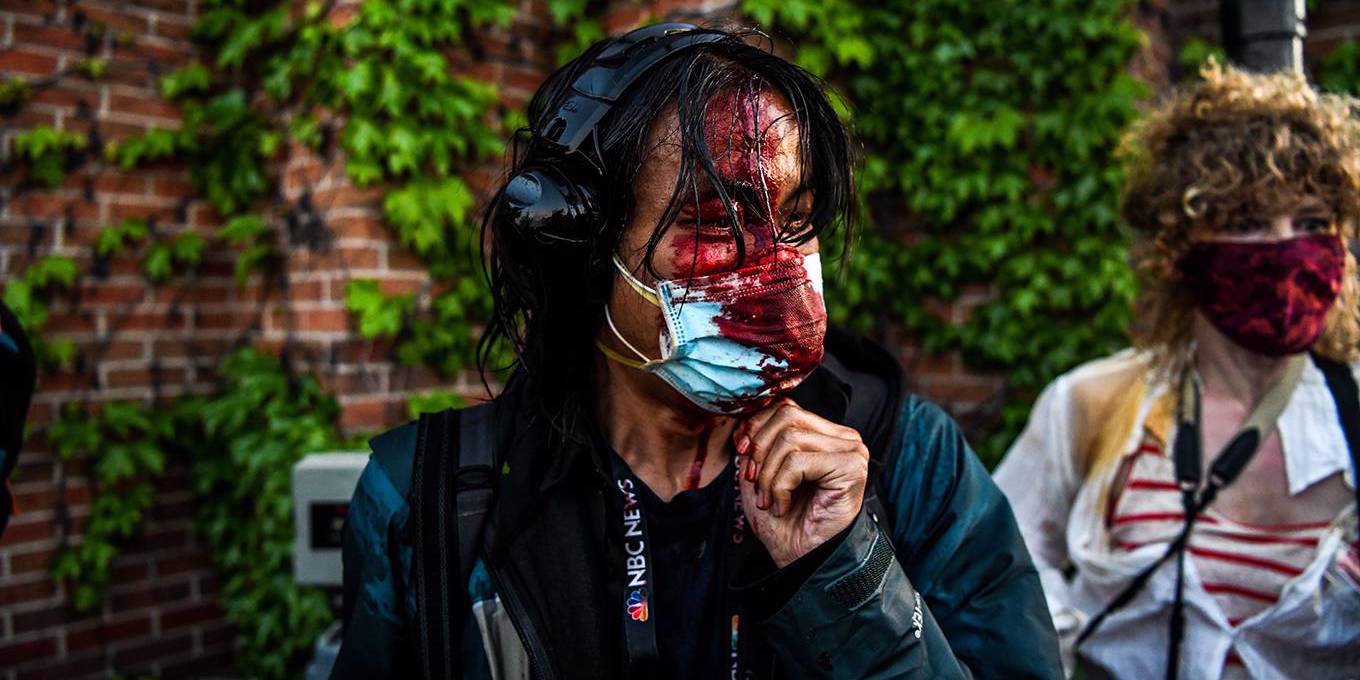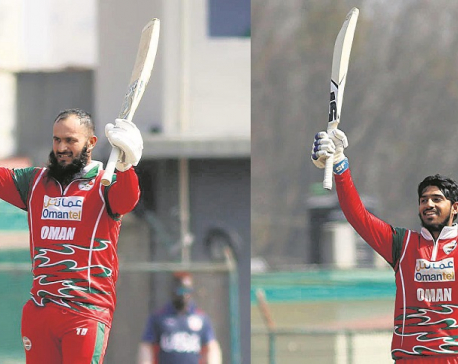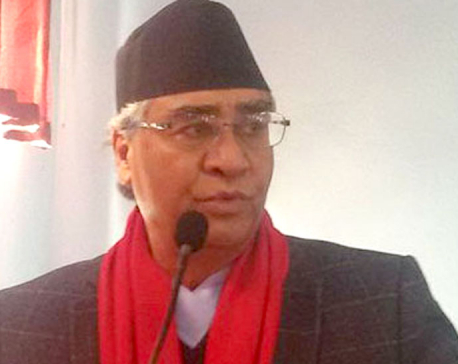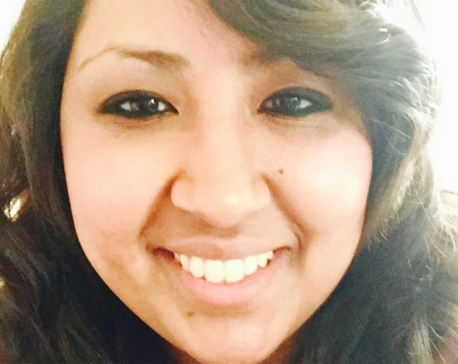
OR
America’s cops must stop attacking journalists
Published On: June 15, 2020 09:26 AM NPT By: Courtney C Radsch

More from Author
Several of the journalists who have been attacked by police recently are foreign correspondents working for overseas outlets.
WASHINGTON, DC – It is no surprise that journalists would go out to the streets to cover the largest and most widespread protests the United States has experienced in more than 50 years. What has been surprising is that journalists would meet with violence and retaliation at the hands of the police, just for doing their jobs.
Since the start of the demonstrations against systemic racism and police brutality that have swept the US in the wake of the death of George Floyd, there have been more than 380 reported incidents of anti-press violence. While some have involved journalists being caught in the melee of violent protests and rioting, the vast majority – around 80% – appear to have been perpetrated by law enforcement, according to the US Press Freedom Tracker.
These flagrant violations of press freedom have been as widespread as the protests themselves, with reports coming from 61 communities in 33 states. The police behind these attacks are failing to abide by the law and uphold the US Constitution. Journalists who have clearly identified themselves, presented press credentials, and carried professional equipment have been assaulted, arrested, and shot at anyway. Determining just how prevalent these targeted attacks have been will be critical for addressing the broader problem of police impunity.
Some of the attacks against journalists appear to have been racially motivated. In a live broadcast from Minneapolis on May 29, CNN correspondent Omar Jimenez can be seen calmly telling police officers that he is a reporter, only to be arrested anyway. As the camera pans to the ground, one catches a glimpse of his entire crew being taken into custody. Meanwhile, a block away, Jimenez’s white colleague continued to report from the scene unmolested. In another incident, Detroit police officers were spotted demanding to see a black reporter’s credentials while leaving his white colleagues alone.
Although Minnesota Governor Tim Walz has since apologized to Jimenez and the CNN crew, the attacks on journalists covering the protests in his state have continued. If anything, the fact that Minneapolis police could arrest a CNN reporter in the first place signals to law enforcement everywhere that all tactics are now on the table. According to the Committee to Protect Journalists (CPJ), there have since been at least 54 more arrests of journalists, including several who also were broadcasting live. In these cases, the officers involved seemed to know they were being recorded and did it anyway.
The fact that police officers are not deterred by the presence of a camera should alarm all Americans. Just as Minneapolis police officer Derek Chauvin can be seen looking directly into the camera as he presses his knee into Floyd’s neck, police who allow themselves to be filmed attacking journalists and other civilians clearly do not fear consequences. After all, police in the US enjoy “qualified immunity,” which is why they have long faced little or no accountability for grave injustices committed against African-Americans like Floyd.
Making matters worse, America now has a commander-in-chief who has long condoned violence against civilians. In 2017, President Donald Trump urged police officers not to be “too nice” to suspected gang members when taking them into custody. And early in the current protests, he invoked a racist trope, warning demonstrators that, “when the looting starts, the shooting starts.”
Trump has attacked journalists consistently since the outset of his presidency, singling out individual reporters and smearing the press as purveyors of “fake news” and “the enemy of the people.” In the toxic environment he has helped to create, Greg Gianforte, a Republican congressman from Montana, paid no political price for physically assaulting a reporter during his campaign. After years of being demonized by elected officials who are sworn to uphold the law, it is little wonder that the press would now be deemed an acceptable target by law enforcement.
Moreover, this anti-press rhetoric follows a much longer trend toward police militarization. Fueled by the transfer of heavy weaponry, supplies, tactics, and soldiers from the wars in Iraq and Afghanistan, the police have increasingly come to behave more like commandos than like public servants duty-bound to uphold freedom of expression, assembly, and the press.
This is not just a domestic US problem. Several of the journalists who have been attacked by police recently are foreign correspondents working for overseas outlets. For example, Australian television journalist Amelia Brace was broadcasting live from outside the White House when she and her cameraman were suddenly attacked by a phalanx of heavily armed police. Similarly, the German journalist Stefan Simons was shot at numerous times by Minneapolis police despite repeatedly shouting “I’m press.”
Australian and German diplomats have complained to their US counterparts about these incidents, and foreign correspondents sent to cover the protests have been warned to prepare as if they were covering a warzone. New York City, meet Egypt circa 2011.
For our part at the CPJ, our board sent a rare letter to local lawmakers indicating our intention “to pursue justice for journalists who were attacked or unjustly detained.” We will continue to investigate these anti-press incidents for as long as necessary. The recent wave of assaults is clearly not just a case of a “few bad apples.” That hoary excuse for a corrupt organizational culture cannot even withstand the proverb from which it is derived: “One bad apple spoils the whole bunch.”
Police attacks on journalists must be met with swift and meaningful accountability. That means rooting out the bad apples as well as the rot that has spread more widely across America’s police forces. As the protests have shown, only when impunity ends can justice begin.
Courtney C. Radsch is Advocacy Director at the Committee to Protect Journalists and author of “Cyberactivism and Citizen Journalism in Egypt: Digital Dissidence and Political Change.”
Copyright: Project Syndicate, 2020.
www.project-syndicate.org
You May Like This

Ilyas, Maqsood decimate US to finish unbeaten
KATHMANDU, Feb 11: All-rounder Aqib Ilyas and captain Zeeshan Maqsood produced top-notch all-round performances to help Oman national cricket team... Read More...

Government trying to muzzle up press freedom: President Deuba
KATHMANDU, Sept 30: Nepali Congress (NC) President Sher Bahadur Deuba has said the incumbent government was trying to muzzle up... Read More...

Nepali migrant woman murdered in USA, hubby held
WASHINGTON DC, Jan 9: Nepali migrant Rina Jadav Shrestha, who was residing in Mecanicsville of Virginia, was gruesomely murdered by... Read More...







Just In
- NRB to provide collateral-free loans to foreign employment seekers
- NEB to publish Grade 12 results next week
- Body handover begins; Relatives remain dissatisfied with insurance, compensation amount
- NC defers its plan to join Koshi govt
- NRB to review microfinance loan interest rate
- 134 dead in floods and landslides since onset of monsoon this year
- Mahakali Irrigation Project sees only 22 percent physical progress in 18 years
- Singapore now holds world's most powerful passport; Nepal stays at 98th












Leave A Comment